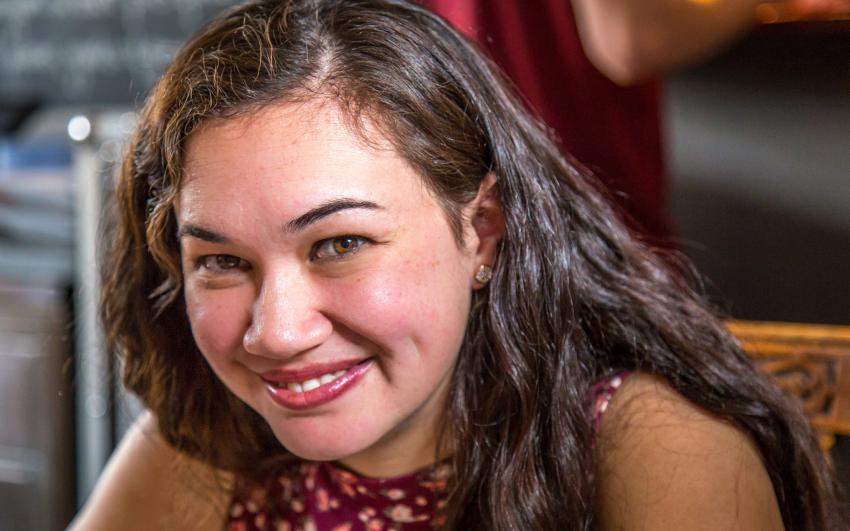The value of food is not often thought about until we’re thrust into a space where the food is unrecognisable and political rhetoric reminds us that we don’t belong. So why does food become so valuable when we live far from home? Sierra Sevilla reflects on how For the Love of Spam emphasises food as a cultural signifier and how you should think twice before judging someone’s (literal) plate.
I joke that For the Love of Spam is a love letter to canned meat and colonialism. But to be clear, I don’t love colonialism. But I do love Spam, which is a byproduct of US colonialism for my island of Guam. So… does that mean I love colonialism?
I’d argue that I love food. Food in all its forms, gloriously salty and rich and delicious. But the food I love the most is the food that transports me, bringing me back home, to my safe places. This is why I love Spam - it’s the one thing I recognise about my culture, no matter where I am.
And consuming it reminds me of who I am and the island I’m from. I remember Mom making Spam on nights where we had no power. I remember buying Spam Kimbap at a small Mom-and-Pop store when I had to wait in the car. I remember eating Spam Fried Rice almost every day at lunch in high school.
So sitting in a cold attic or a damp basement flat in London, eating Spam made me feel good. It was just like how I remembered it. And living in a country where you are an immigrant, where the political messaging is constantly ‘go back to where you came from’.... Well, eating Spam made me feel not only that I was home, but that I was carving out space in this hostile place to show that yes - I am Guamanian and I eat Spam.
It’s very hard to live in a country that isn’t your own. Harder still when that country looks down upon the food you eat. How often have people said that Spam is gross? How often have people said that my Filipino food like bagoong (fermented shrimp paste) and Dinuguan (pork blood stew) is gross? How often have I been asked what I’m eating, only for people to look disgusted when I tell them the truth?
In some ways, eating Spam and all the other things that Westerners have found gross is an act of rebellion, a way to remind myself that I’m not losing my culture. That in a sea full of people who don’t look like me or have the same experiences as me - I am carrying my heritage forward. I am not a traitor for moving away from Guam. I am part of the diaspora - the group of people who carry our Guamanian and CHamoru culture outward, sharing our food to create home and community with others. It reminds me I haven’t lost my culture, and that I can bring home with me wherever I am so long as I can see and eat the food I know.
So when audience members are invited to come up and try some Spam at the end of the show, and I see their faces light up or hear their exclamations of delight - I beam with pride. I feel at home, a sort of kinship with those people who have seen my heart and culture on stage for the past hour and have given Spam a try. It makes me tear up sometimes because as an immigrant it’s easy to feel alone in the UK. But seeing people take that leap, extend their hand (and stomach) to me… it makes me feel embraced.
So Spam is much more than a tin of meat. Spam is part of my cultural identity. And if I can keep eating it, then I can keep connecting to Guam. And for every time someone baulks at what I eat, or says the food I’ve made is smelly - I will stand proudly and remind them - home is where the Spam is.
Thu 16 - Sat 18 May at 7.15pm
Tickets £8 - £12 (+ booking fee)
